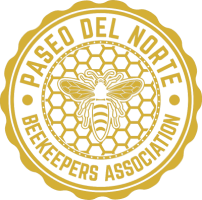Beginner’s Guide to Beekeeping
As bee populations decline, understanding the threats they face is crucial to preserving their health. From pesticides to habitat loss, explore the challenges affecting bees and discover ways to make a positive impact. Learn about local efforts, conservation initiatives, and more in this section dedicated to beekeeping and environmental stewardship.
Colony Collapse Disorder
Honeybees are facing significant dangers from pesticides, herbicides, loss of natural habitat, monocropping, pathogens, and pests. Every beekeeper should be aware of these pressures and take part in efforts to combat these dangers. Organizations like the NRDC provide valuable resources, including videos, on these topics.
Neonic Systemic Insecticides
Stay informed about neonics, a widely-used systemic pesticide in the United States that affects bees. The NRDC offers excellent resources, including a video from 2018, that discuss its impact.
Local Beekeeping Club
Successful beekeeping can often require local knowledge and support. Engaging with local beekeepers allows you to gain region-specific advice and hands-on help when needed, like identifying your queen or checking on your hive. If you're in Southwestern New Mexico or El Paso County, Texas, the Paseo del Norte Beekeepers Association offers mentors who can be invaluable for your first season. To find a club in your area, click here.
Learn About Honey Bees
There is a wealth of books and online resources on honey bees and beekeeping. The more you learn, the better prepared you’ll be when starting your hives. Understanding the various species, castes, and their roles in the hive is key to successful beekeeping. The Paseo del Norte Beekeepers also offer beginner courses, so take advantage of all learning opportunities available.
Tagging along and assisting a beekeeper in relocating bees from trees or structures is a great way to build your skills before managing your own bees.
Learn How Bees Make Honey
Before diving into beekeeping, it's important to understand how a hive system operates. Bees build nests in natural cavities, fly to flowers to collect nectar, and bring it back to the hive, where it eventually becomes honey. This basic knowledge will help you as you start keeping bees.
Learn Where to Get Honey Bees
Many new beekeepers buy bees as packages, NUCs, or established hives in the spring. However, these need to be ordered in the previous winter or by January. Opportunities to capture swarms or assist in relocating colonies (cut outs or trap outs) may also arise. Most experienced beekeepers recommend starting with at least two colonies to share resources as needed.
The Paseo del Norte Beekeepers maintain a reliable list of local vendors for NUCs, packages, and queens. Check the latest list of vendors for honey bees and queens.
You can also use Google Maps to find honey bee breeders. View the Honey Bee Breeders Map.
Learn About Different Beehives
To keep honey bees, you'll need a hive system. In the wild, bees seek out natural cavities for their colony. As a beekeeper, you will provide them with a suitable hive, making it easier to maintain the colony and harvest honey.
There are many hive systems to choose from; click here to learn more about each. We also encourage you to seek guidance from an experienced beekeeper who can mentor you in setting up your first hives.
Learn About Beekeeping Tasks
What does taking care of your bees involve? Much like gardening, beekeeping tasks vary by season. Starting your hive in the spring is best, as it gives the colony time to grow, lay brood, and store honey before winter.
There are numerous videos available on platforms like YouTube and Vimeo to help you learn beekeeping skills. Paul Kelly and the University of Guelph have produced a series of 32 videos covering everything from lighting a smoker to raising queens. You can find these resources on the University of Guelph Honey Bee Research Centre's YouTube channel.
Gather Your Beekeeping Supplies
What essential supplies do you need to get started? Start small and learn as you go, which will allow you to make adjustments if needed. Some items are best bought in person, while others can be ordered online.
Respect your mentor’s time and investment by acquiring your own equipment and not relying on borrowed supplies. It's also wise to have an extra hive available for splits and swarms.
Basic Equipment - https://youtu.be/4psC0-CecdQ
Have Fun
Above all, enjoy your journey into beekeeping. Be patient with yourself, as mistakes are part of the learning process. Share your experiences and seek knowledge from others as you grow in your beekeeping skills.

